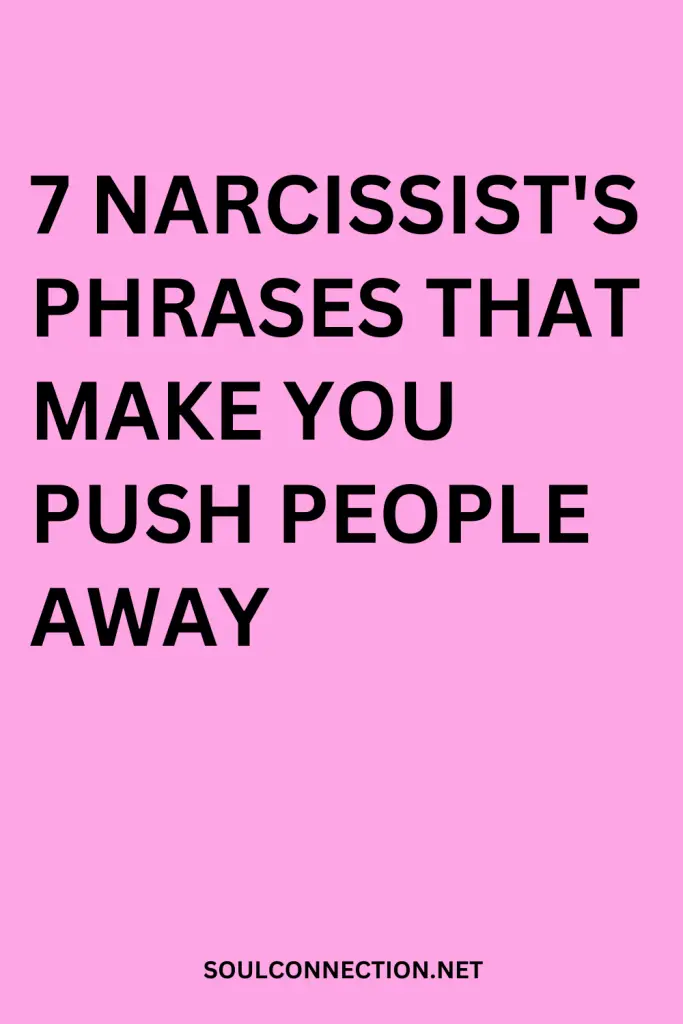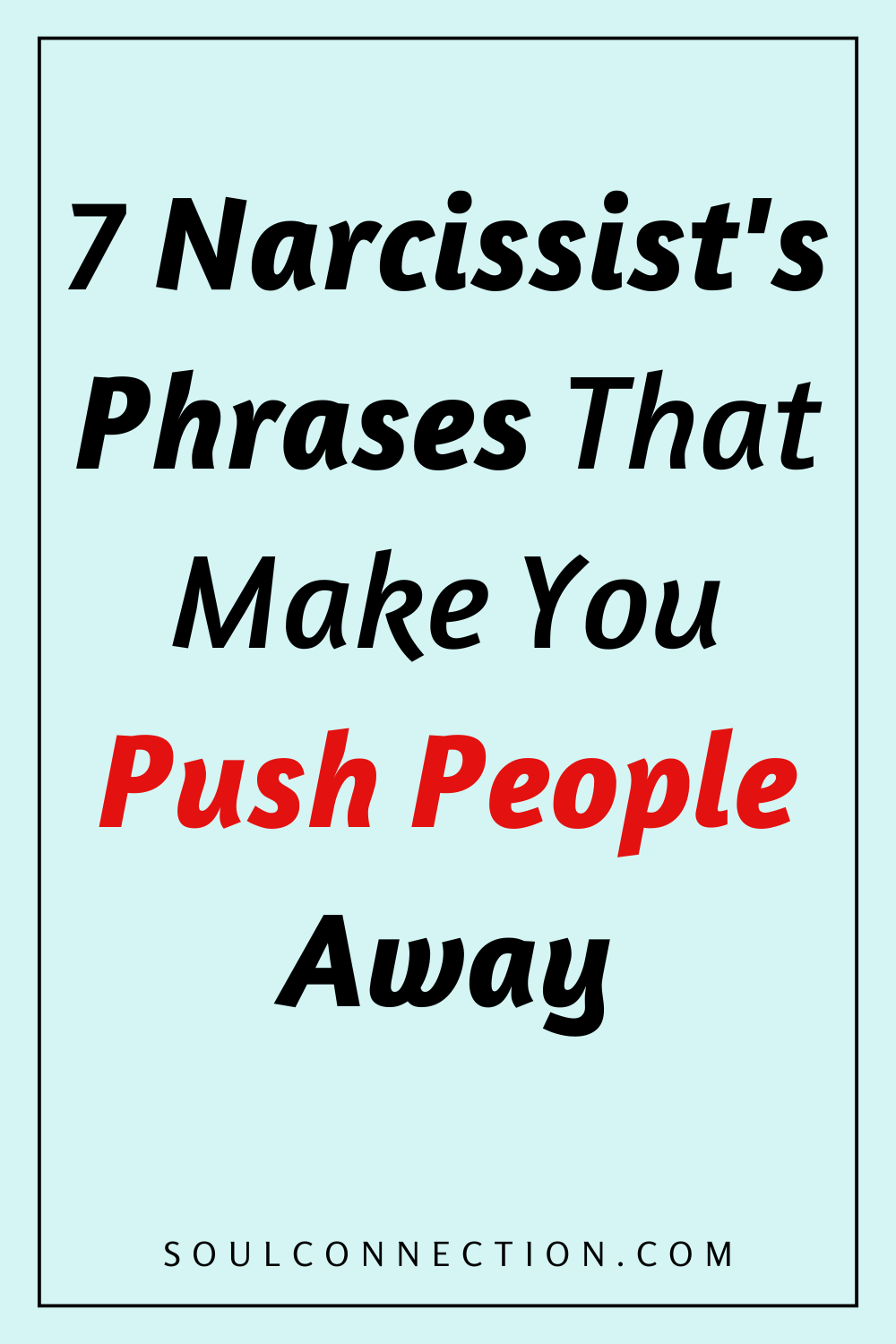Ever found yourself repeating words that sound like they were lifted straight from a narcissist’s Greatest Hits album? Newsflash: sometimes it’s not just “them.”
Some of these phrases worm their way into our conversations, and before you know it, you’re playing emotional dodgeball with everyone who gets close.
If people seem to drift after a while, take a peek at what’s coming out of your mouth. Here’s a warm (okay, occasionally cheeky) guide to seven classic narcissist one-liners that can send even the most patient loved ones running for the hills.
1. “I’m just being honest.”
Oh, the gold standard of backhanded communication. The words are barely out of your mouth before you’ve managed to insult someone’s new haircut, life choices, and possibly their dog.
Honesty is great—unless it’s simply a license to blurt out whatever pops into your brain, with no filter and zero empathy.
Narcissists adore this phrase. It’s the perfect disguise for cruelty: hurt someone, blame their “sensitivity,” and walk away feeling a little too smug.
If this gem makes a regular appearance, expect friends to keep you at arm’s length, maybe even several arms’ lengths.
Instead, try a softer landing: “Would it help to hear my thoughts on this?” Or, you know, zip it if you’re about to unleash some unsolicited wisdom on someone’s questionable IKEA furniture choices.
2. “Why are you so sensitive?”
Ah, turning the tables, classic maneuver. Suddenly, it’s not about what was said—it’s about how someone dared to feel about it.
This phrase hands the other person a big bucket of shame, along with a complimentary ticket to the self-doubt carnival.
When “Why are you so sensitive?” rolls out, it shuts down connection faster than a dodgy Wi-Fi signal.
Every relationship needs space for emotions, even messy ones. Swap this out for a little curiosity: “Did I say something that upset you?”—and brace for a real answer. Who knows, you might even learn something.
3. “You’re just overreacting.”
Ever noticed how “overreacting” usually means “reacting in a way I don’t approve of”? Nothing says “I care deeply about your feelings” like telling someone they’re doing emotions wrong.
It’s a surefire way to make people feel small, unheard, and reluctant to open up next time.
If this phrase features heavily in your highlight reel, relationships might start to feel a bit… chilly. Challenge yourself to stay present instead: “That seems important to you. Want to talk about it?”
Even if their response is a little much for your taste, validating their experience opens the door instead of slamming it.
4. “If you really loved me, you would…”
Welcome to emotional blackmail’s favorite pick-up line. This phrase is the go-to tool for getting your own way, wrapped up in a nice bow of guilt. Romantic, right? Not so much.
Whether the request is big (“If you loved me, you’d move across the country”) or minor (“If you loved me, you’d let me control the TV remote for eternity”), this phrase erodes trust and creates a lopsided dynamic.
A better tactic: actually express your needs without weaponizing affection. Try, “It would mean a lot if you…” and—wild idea—accept “no” as a valid answer.
5. “Everyone agrees with me.”
Because nothing settles an argument like an imaginary jury of your peers. “Everyone” is a magical, shape-shifting group that always, coincidentally, takes your side. Funny how that works.
Trotting out this phrase is a way to bulldoze someone’s opinion, making them feel isolated or outnumbered. It’s a power play, not a conversation starter.
Reality check: unless you’ve polled every single human (and honestly, you haven’t), leave “everyone” out of it. Stick to your own thoughts and own them: “This is how I see it.”
People respect opinions a lot more when they’re not hiding behind a fictional army.
6. “I guess I’m just a terrible person.”
Cue the violins and bring on the dramatic lighting. This is the classic pity party move, where the subject of the conversation magically shifts from someone else’s hurt to your own supposed awfulness.
Suddenly, your partner or friend is comforting you, and their original complaint is buried under layers of “No, you’re not that bad.”
This phrase is emotional sleight of hand. It’s tempting to whip out when you feel cornered, but it pulls the rug from under genuine connection.
Bite your tongue, resist the urge, and focus on what the other person is feeling. Try: “Sounds like I hurt you—help me understand.” Less drama, more resolution.
7. “You’d be nothing without me.”
And here we reach the grand finale: narcissist bingo’s free square. If this phrase has ever graced your lips (or someone else’s in your life), congratulations—you’ve hit the emotional manipulation jackpot.
This is the nuclear option, designed to flatten self-esteem and keep another person small.
Healthy relationships don’t require keeping score or reminding people of their supposed dependence. If you want to be valued, build up your partners and friends—don’t tear them down to feel taller.
Challenge yourself to flip the script: appreciate what each of you brings, and let go of the need for superiority.
Spoiler: the people in your life will like you a whole lot more.
Shaking Off the Script
Every one of these phrases is a shortcut—a quick way to shift blame, dodge vulnerability, or seize a little extra control. They promise connection but deliver distance.
If you spot yourself using any of them, no need for a guilt spiral (that’s phrase #6’s territory, after all). Just notice, pause, and try something new next time.
Brave enough to ditch these lines? Watch how quickly your relationships warm up again. People want to feel heard, understood, and respected. Turns out, so do you.
And if you sometimes stumble back into old habits—welcome to the human race. Perfection isn’t required, but a little self-awareness goes a long way.
Now, get out there and sprinkle a little more kindness into your conversations. Even if you don’t love their haircut.


